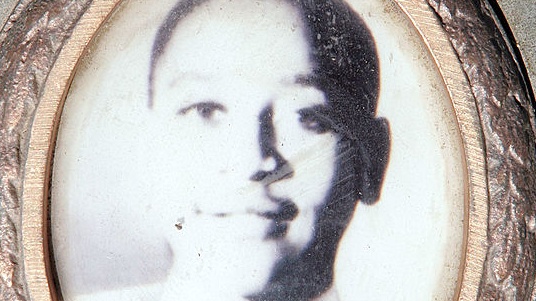The Chicago church where Emmett Till's open casket was on display for thousands to see has been designated as a national endangered site and will receive support in maintaining its preservation.
The Roberts Temple Church of God In Christ in Chicago’s Bronzeville neighborhood made the National Trust for Historic Preservation’s list of endangered historic sites this year, according to The Chicago Sun-Times.
Each year, the list of 11 most endangered historic sites highlights historical, physical spaces at risk due to damage or near dilapidation. In 33 years, nearly 95% of the 300 historical landmarks the trust has worked with have been rescued.
The list for 2020 includes the Alazan-Apache Courts public housing development for a Mexican-American community in San Antonio, Texas, and the capital of the Monacan Indian Nation in Columbia, Virginia, Rassawek.
“Mamie Till Mobley’s courage — and Roberts Temple’s willingness to open its doors to anyone who wanted to bear witness to the ravages of racial hatred — changed our nation forever. The National Trust believes that we must work together to ensure that this place, so important to our country’s history, is preserved to tell its powerful story for future generations,” Katherine Malone-France, the trust’s chief preservation officer, said.
While on a trip to visit family down south, Till was kidnapped from his uncle’s home in Money, Mississippi, on Aug. 28, 1955, for allegedly whistling at a white woman. His body was recovered three days later from the Tallahatchie River, mangled, beaten beyond recognition and weighed down into the water with a cotton gin fan, according to History.com.
The only distinguishable feature on his body was an initialed ring. Till’s mother, Mamie Till Mobley, urged officials to send her son’s body back to Chicago.
In a decision remembered in history, Mobley opted to have an open-casket funeral for her son.
Rev. Wheeler Parker, Jr., 81 years old and Till’s last remaining relative to witness the series of events that led to his cousin’s death, recalled traveling down south with his close kin in 1955.
“Emmett and I traveled to Mississippi together. I caught the train down at 12th Street, that’s where it was then. He caught it at 63rd & Rochester. We were not there long before he was kidnapped, savagely beaten, shot in the head, weighted down and thrown in the Tallahatchie River, never to be seen again,” Parker said during a press conference on Thursday.
Parker, the pastor of Argo Temple Church of God in Christ in Argo, Illinois, said Mobley once told him to honor Till’s memory and to carry on his legacy.
“His mother’s wishes and dream was, ‘I hope he didn’t die in vain. I hope he didn’t die in vain.’ Mamie asked me to carry on, along with my wife, the legacy of her son, and I just thank God that I was able to do that,” Parker said.
“I always felt, I don’t know the proper word, but when I was in [Mamie’s] presence, I was always conscientious that I came back and he [Emmett] didn’t. And when you feel that, it gives you a certain feeling,” he added.
The endangered list designation for the south side church is the second recent preservation honor bestowed upon sites in Chicago related to Till’s story.
On Sept. 3, the Commission on Chicago Landmarks announced preliminary landmark status for the home where Till lived in the city's Woodlawn neighborhood, per the Chicago Sun-Times. In 2006, the Roberts Temple Church was also designated a landmark by the city of Chicago.
Church leaders said Thursday they are working to evaluate the building’s condition, address its structural issues and preserve its continued use as a religious center and community resource.
“Though listed as a Chicago Landmark for its association with Emmett Till’s funeral, the church today has severe structural issues and is only minimally used by the congregation. To ensure long-term viability, the building needs rehabilitation funding and partnerships,” a spokesperson for the trust said.
Historical sites related to Till and other sites of American heritage have become more prominent in the public eye given the recent swell of social justice protests.
Last summer, a Brooklyn-based company replaced the commemorative sign honoring Till in Mississippi after University of Mississippi students posed in front of the sign bearing guns, Blavity previously
reported.
After the sign was riddled with bullet holes, company LiteBriteNeon created a new, bulletproof memorial made with reinforced steel to honor the slain teenager. The students responsible for the photo were suspended from their fraternity.
